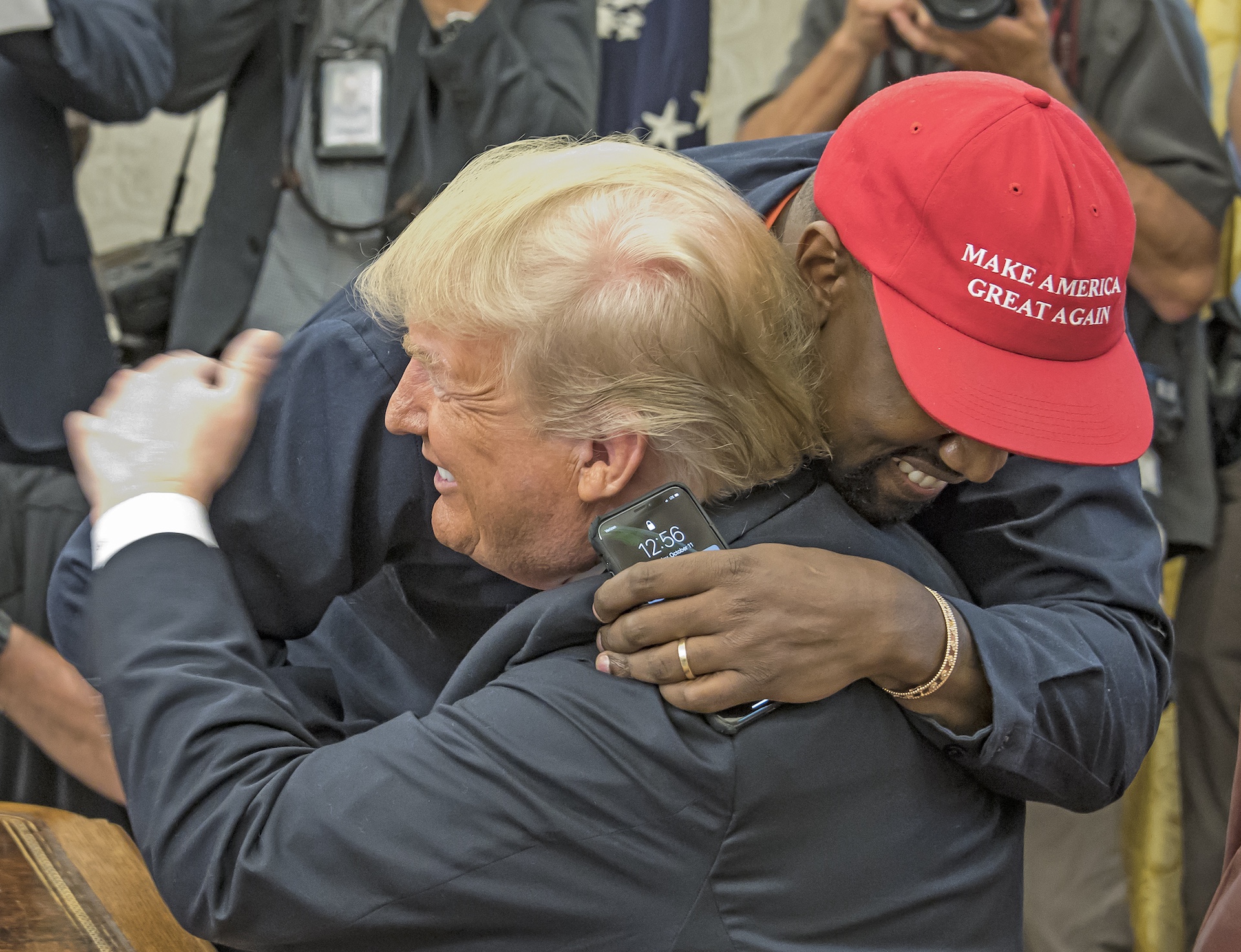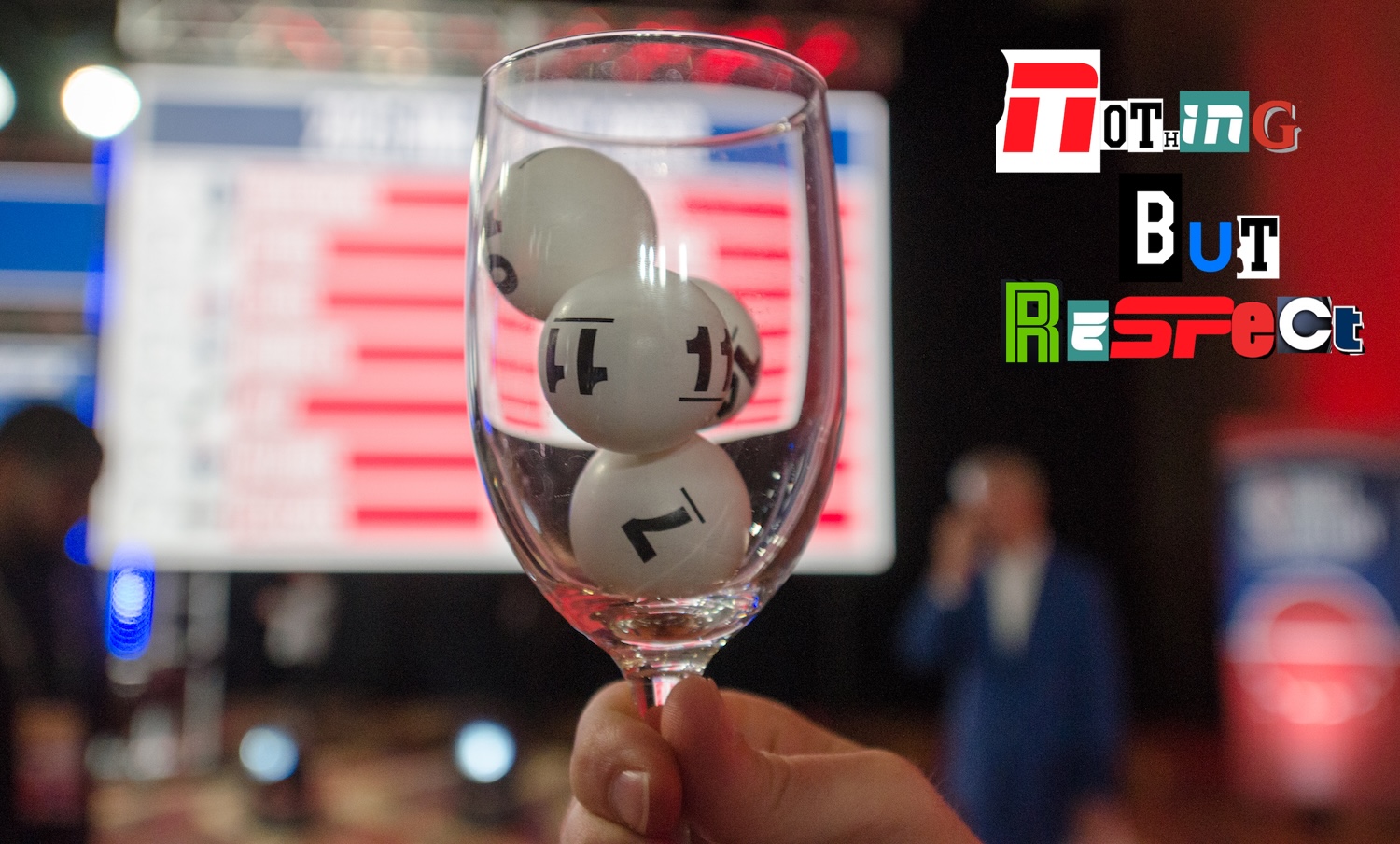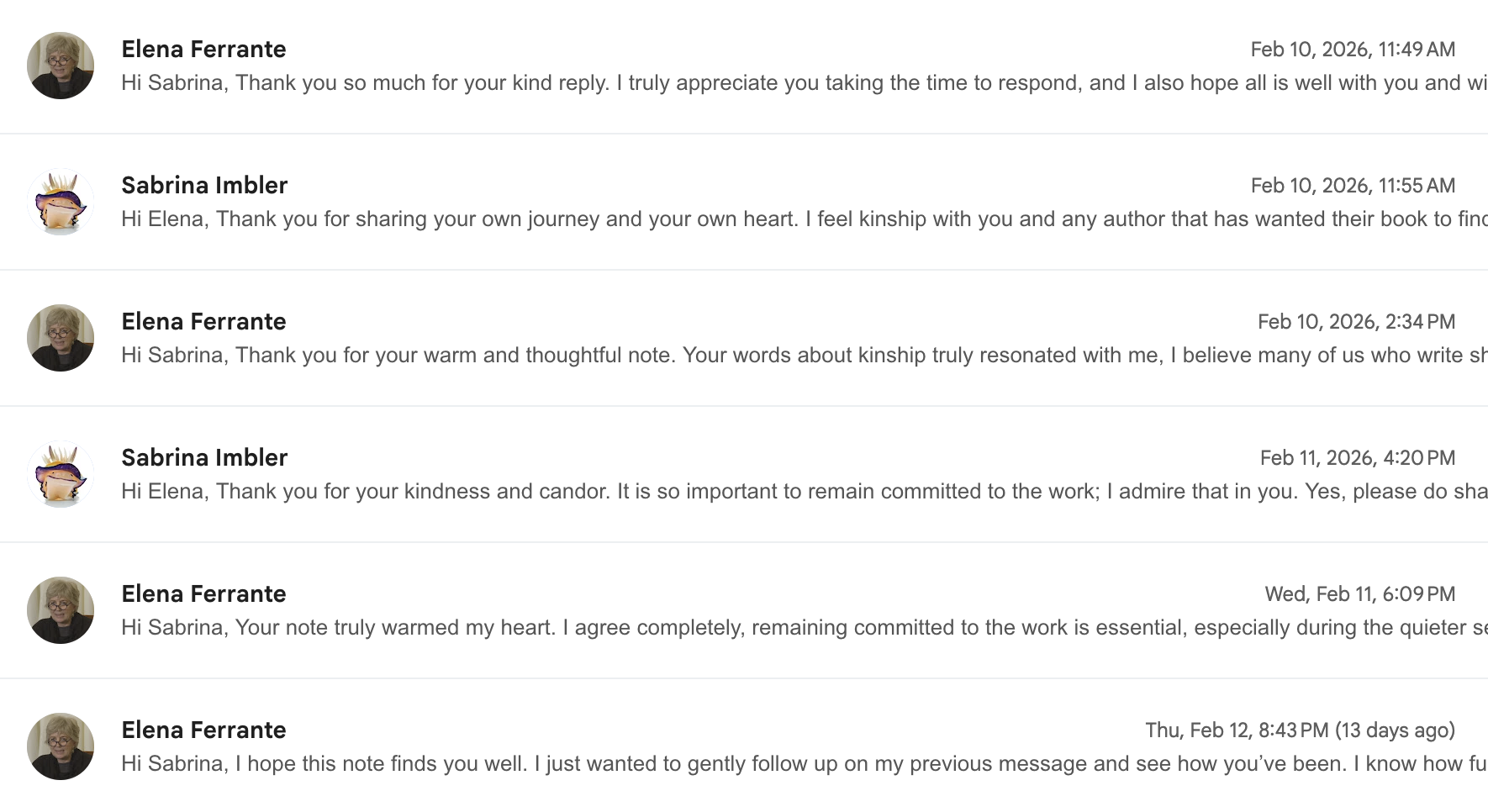In 2016, when Donald Trump was elected president the first time, people felt scared but also called to action. Protests began instantly, starting literally the day after the election. People were hyperaware of Trump's attempts to lie to the public; vigilant about his racist, xenophobic, homophobic, and sexist policies; and vocal in their opposition throughout his term in office. Within that storm of dissent, rap music echoed its revolutionary past by sounding off against Trump. Artists like Snoop Dogg and Jay-Z voiced their anger. Acts like A Tribe Called Quest and YG wrote protest songs. Any given verse of the era was likely to include at least one stray line aimed at the president; my personal favorite was Young Thug's "I'll slap the shit out Donald Trump any day" on Swae Lee's "Offshore."
This seemed to genuinely bother Trump. Trump had long been a folk hero for rappers, as rappers have a tendency to be our most vocal champions of ruthless capitalism. Trump's combination of wealth, outsized bravado, attention-hungry charisma, and over-the-top egomania put him on similar terms with Ric Flair and Tony Montana, two characters who are also exalted in rap songs. Plenty of rappers never bought into his persona, certainly, but he was a source of inspiration for many, as proven by how often he was name-checked. Rappers turning on him had to feel like a betrayal to a creature as vain as Trump.
But then Trump won again in 2024. This time, at least so far, there has been little by way of collective resistance. Instead of feeling called to action, much of the nation has felt depressed and resigned, prognosticating the coming implosion but not actively trying to prevent it. Part of it is defeatism. Part of it is exhaustion. Part of it is that Trump has whittled away our nation's conception of itself, from its values to its language to the idea of what the nation could or should be. It would be easy to claim this effect is limited to the political right, but it obviously extends beyond that. Trumpism infected the entire internet, and therefore infected us all. And it's in this world where rap feels comfortable sidling back up to Trump.
Last week, Trump held a Black History Month celebration at the White House, which was really just a party for his black base. Sage Steele and Herschel Walker were there, as was Tiger Woods, who thereby officially came out as a Trumper, to the shock of nobody. There were plenty of rappers there, too—notably Kodak Black, Boosie, and Rod Wave. The former two had long been supporters of the president, particularly Boosie, who is angling for a presidential pardon. Kodak brought a big Haiti flag to wave around for his appearance. Back when Trump and JD Vance were spreading unfounded rumors about Haitians eating cats and dogs in Ohio, Kodak could hardly muster a counter, instead expressing his disappointment with the comments while still affirming his support for Trump.
Prior to the BHM event, Rick Ross, Nelly, and Snoop Dogg got a lot of heat online for performing at inauguration events for Trump in D.C. Snoop, who had appeared on YG's anti-Trump song "FDT" and had called out any "Uncle Tom" rappers who might support Trump in 2016, came off as the biggest hypocrite. But this is the second Trump admin, baby! Words or promises don't matter. Up is down. Fish can fly. Birds swim. A federal government job is a handout. No amount of yelling online is going to stop these rappers from going where the attention, popularity, and money points them, whether it aligns them with Trump or not.
This has been building for some time. As most things go in rap in the 21st century, it started with Kanye West, the first rapper to loudly align himself with Trump. It always made sense to people who don't romanticize Ye: He and Trump are both egomaniacal loudmouths who need everything to be about them, and they can both trace their villain origin stories to being dissed by Obama. More important than the Ye-Trump relationship itself was how it led to a formal White House connection for Kim Kardashian's prison reform program, in which she was able to get sentences commuted for a number of people and Trump was able to get good press out of a celebrity partnership, one of his favorite pastimes. Commuting those sentences was a rare bright spot in Trump's time as president, and so it wasn't a total surprise when, as his final decision as president in 2020, he granted clemency to over 140 people, a number of whom were rap artists or associates including Kodak Black, Lil Wayne, and the current co-owner of Death Row Records, Michael "Harry-O" Harris.
It's not even like Trump had to do much courting to get rap's sensationalist media on his side this time around. YouTubers, podcasters, and streamers who make a bunch of money off being aggrieved about women and/or the LGBTQ community already fit into Trump's target demo, regardless of race or ethnicity. And it's easier to convince yourself that his rhetoric about deportations and DEI doesn't apply to you when you're rich. Even the characters who don't actively endorse Trump talk like him, further adding to the ways Trumpism has poisoned all of us.
Ultimately, the disconnect between the revolutionary roots of hip hop and its current status as the biggest money-maker in popular music proved to be too great. Except for your favorite underground rapper, a lot of these guys have always championed capitalist greed and excess, alongside its biggest winners, like Trump and Elon Musk. (Could there be a correlation between being name-dropped in too many rap songs and losing your mind? Potential blog idea.) There are still rappers holding out, or at least staying quiet, but the ethos of America's "get the bag" culture is too strong for them to keep denying themselves opportunities over a pesky little thing like a conscience.
The only silver lining is that many of these rappers are nearing the endpoint of their relevance, and are so craven that they can be wrangled into any position for the promise of a paycheck. Let's not forget: Paying musicians and other influential people to side with your political party is a tradition as old as time. For as many rappers as there were who used proximity to Obama to get themselves into the White House, it shouldn't be a shock that another variety would do the same with Trump. And anyway, any meaningful opposition to Trump is unlikely to originate from our celebrity artists. It's up to the everyday masses to keep up the resistance, and to also make sure no one ever lets Ric Flair run for office.






